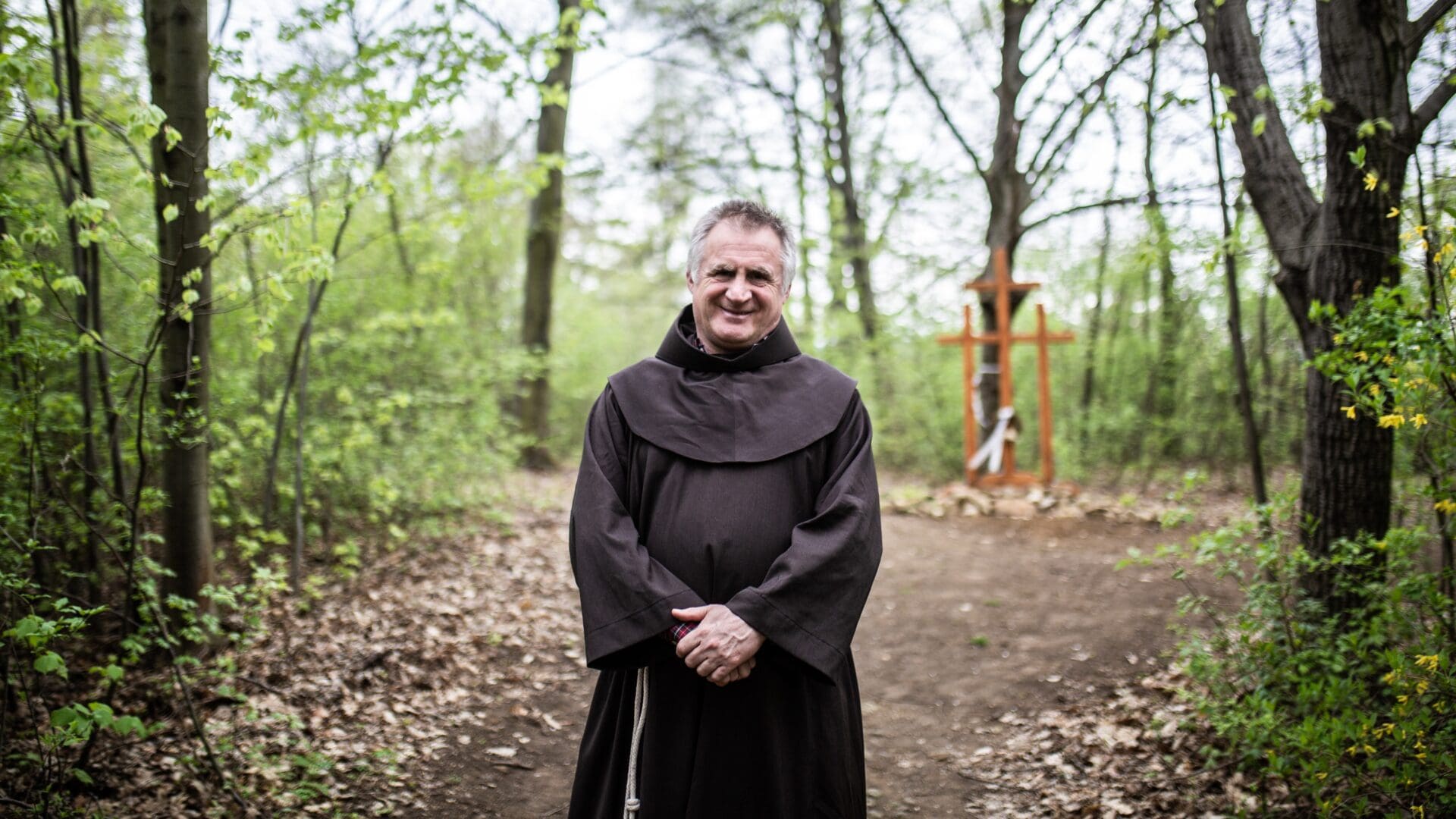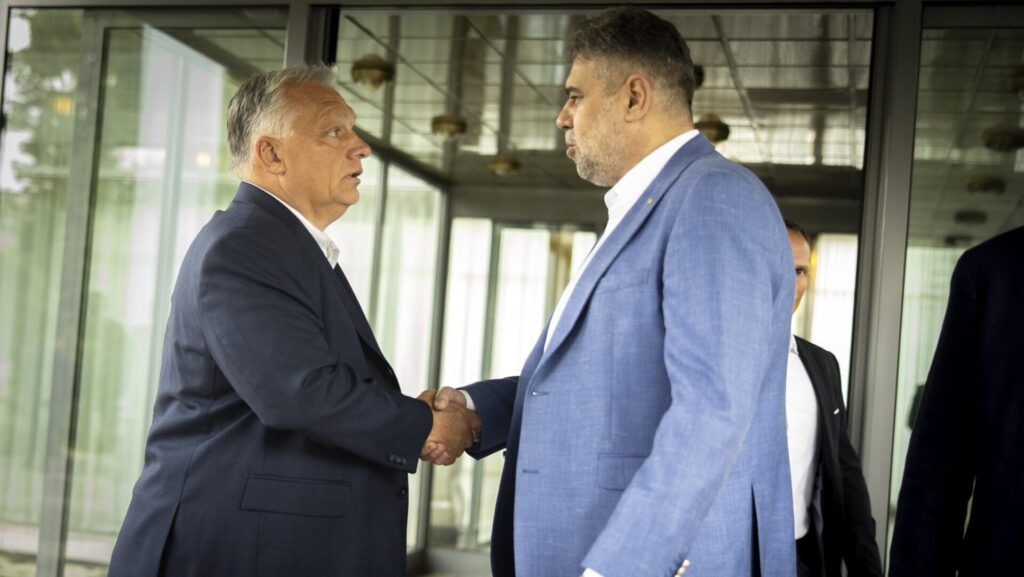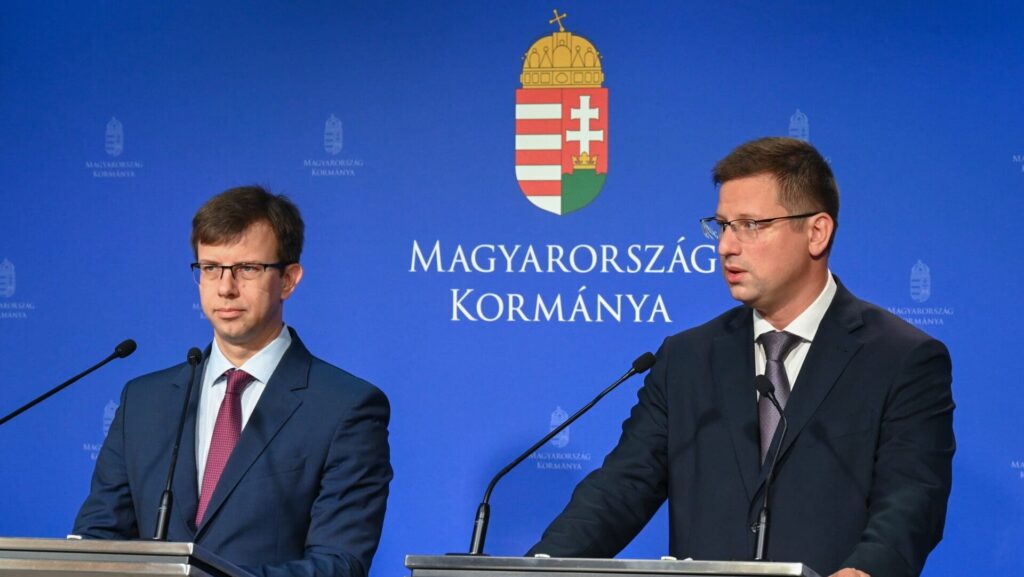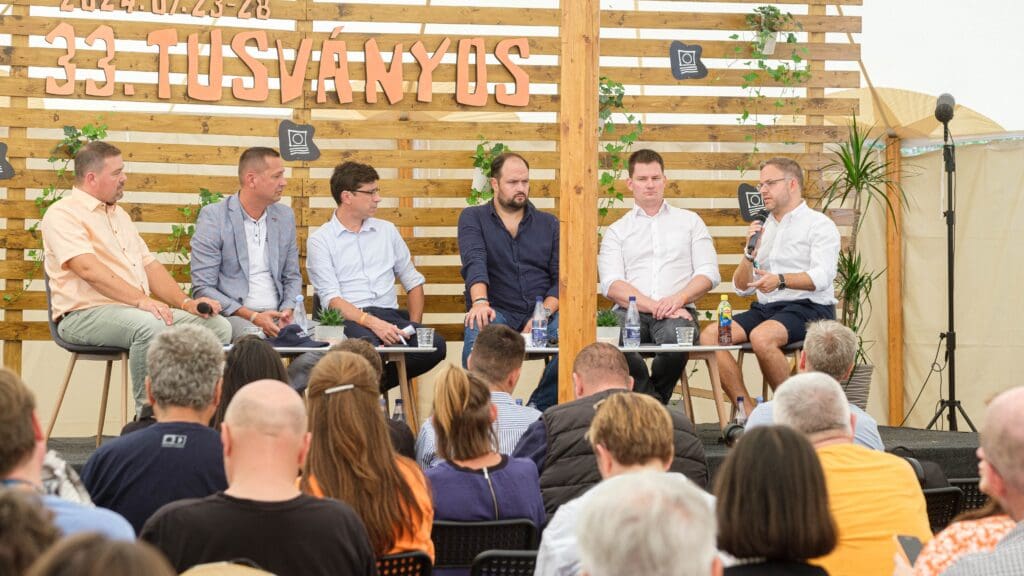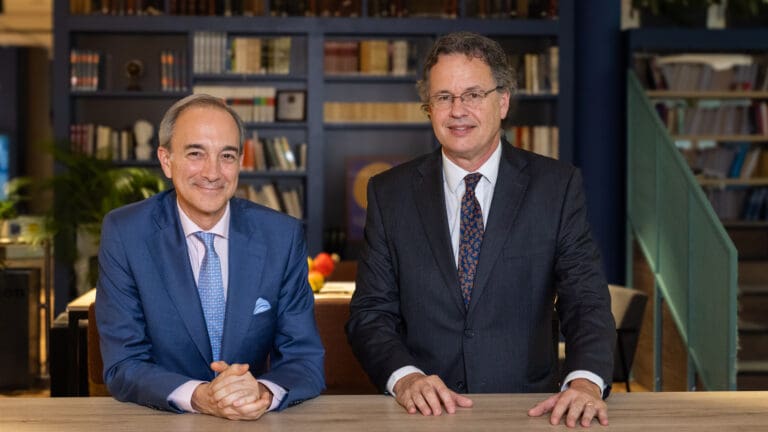The following is a translation of an interview written by Gergely Vágvölgyi, originally published in Mandiner weekly.
You have great plans for the nearest future—as far as I know, you are heading to Western Europe to take Deva’s spirit and enthusiasm there as well. What are you up to?
Everyone is burying Christian Europe, the French, and the Germans. In my view, a child in trouble should not be sent away but should be bathed and taught, and the sick should not be buried, but cured. I’ve been planning for a long time that we should go to Western Europe, and blow some ashes off the embers.
Would it be our job?
Do you know who the patron saint of Hungary was until the end of Saint Stephen’s reign?
King Stephen offered the country to the Virgin Mary.
But until then, Bishop Saint Martin was our patron saint. Stephen’s mother-in-law, whose name was Gizella (just like his wife’s) was born in Burgundy, the same place where Saint Martin is buried. And he did not become the patron saint of that region because he gave half of his cloak to the poor. When the enemy invaded the country, Martin rode against them on the emperor’s side. On the day before the battle, the emperor gave gifts to his allies, but Martin refused to accept any. He was of the opinion that the enemy should not be defeated, but convinced. With the emperor’s permission, he went over to the enemy camp, negotiated, and hence the battle was never fought. We don’t know what he said or how he said it, but the fact is that he won peace, resigned from his rank as a general, moved in with the Franks, learned their language, and became their bishop and apostle. More than eight hundred churches were built in his honour in France. As if today a high-ranking American general were to return his insignia, move among the Afghans, learn their language, and convert the entire people.
So, would you ride against the zeitgeist?
This is not the end of the story, because the Moorish influence exerted on Europe from the direction of the Iberian Peninsula was also significant. However, under the leadership of Pepin the Short, the victories achieved changed the history of Europe, and his son, Charles the Great, became the first Western-Roman emperor. Saint Stephen’s brother-in-law, Henry later became the only Western-Roman emperor to be canonized. In practice, Charles himself and his work gave us Christian Europe. In the centre of his rule, in Aachen, he collected many special and priceless Christian relics, even from the times of Christ. These are available to the public once every seven years—and actually, this year is the seventh. Cardinal Péter Erdő has been invited to the related celebratory mass to be held on 13 July. Then I thought: let’s go on a huge pilgrimage together, collect as many as possible, and take the love and message of Hungarian Christians to our Western brothers and sisters. The organisers, echoing the logic of ‘daring to be small’ said they couldn’t accept more than five hundred people from us. But five hundred people might do the trick, am I right? So, we will accompany the cardinal, and ride ten buses. We will even have a separate sector. Let’s see how much can we crank up this Western Christianity, let’s make them sing!Seemingly, the nations that once supported Christianity are now recanting what they once stood up for.
Do you see any chance of reversing this process?
Saint Stephen saw his brother-in-law as an example, and St Ladislas’s role model was Charles the Great. They wanted to achieve exactly the same in the Carpathian Basin what their role models achieved in the West. They were attracted by the ideal of a Christian Europe. In the depths of our souls, we feel that a Carolingian reform would come in handy even today for sure. But let’s fight not against something, but for something: for our roots, for our ideals! I feel that Christians here in Hungary are also struggling with some kind of identity crisis. Let’s not forget: the country was built by Saint Stephen under the banner of Martin—the one who did not want to defeat but to convince the enemy.
Do you think that we are trying to defeat something right now?
We are fighting against everyone. The goal of Christianity is not to defeat, but to integrate and evangelise. Jesus did not defeat Saul, but integrated him—and see how much the Church gained with the hymn of love—certainly more than with an executed Saul!
You said that it’s about time to learn how much Western Christianity can be ‘cranked up’. What state do you think it is in today?
I always tell my colleagues that a good teacher should not behave like a beauty pageant judge. It is not a competition, where scores mark the performance. Hard-fated children are joining us from time to time, and if we were to receive them in such a way, we could mark almost all of them down. A true artist manages to carve a wonderful masterpiece out of a block of marble, and a good teacher triumphs in making a child conscious of his knowledge and value. I have no right to speak down to Western Christianity, and it wouldn’t make sense. Still, a meeting would be beneficial both for them and for us as well. We will be able to draw strength, we will get braver, and we will be enriched, just like at home at the Pentecost Pilgrimage of Csíksomlyó.
Speaking of Christian Europe, several people claim that it’s just a myth, that the ‘old continent’ was never Christian…
Yet, those beautiful cathedrals had to be built by someone, and those innumerable saints had to grow up somewhere! It is often questioned whether something has come to fruition from Jesus Christ’s commandment to love. I always tell the children that this commandment of Jesus is here with us—for example, it is in the public road network, public education, public healthcare, in public lighting, and public safety as well. In Christian Europe, I can wander around without wielding a weapon, I receive proper healthcare if I get sick, I can send my child to school, he can graduate from university, and in Hungary, he can learn two professions for free—no matter what anyone says, this all grew out of the command of love. If you don’t believe me, go to Congo and see what happens when you call 112. I disagree with Gandhi’s saying that Christian Europe is like a stone in water: if you crack it, it is dry inside. I see that in Europe, even the person who does not go to church, who is not baptized, sings and hums the values that Christ preached from morning to night: the willingness to dialogue, mercy, and solidarity. All of this permeates us. If someone kicks a stray dog, Christian Europe will hiss. Why? Because Jesus said don’t kill, don’t hurt anyone.
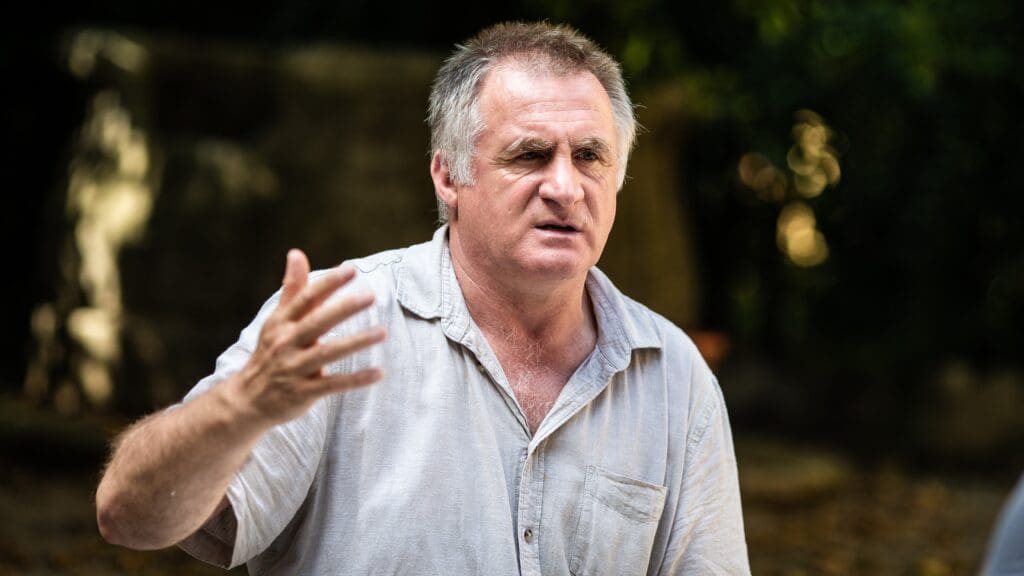
But while the hiss of Europe sounds compassionate, thousands of foetuses are being killed on a daily basis…
I never said we’ve reached the finish line. But we have come a long way in these two millennia! And the route further is fine only if it’s enlightened by the Gospel. Of course, we tend to simplify things: does someone go to church, has he been baptized, how many rosaries does he say? But the Virgin Mary didn’t recite a single rosary, and her certificate of baptism would also have to be searched for a long time in Nazareth. Don’t limit Christianity to external things! Certainly, there is a lot to do, but I think it would be a shame to devalue and throw away the achievements of the two millennia we lived together. Let us let go what is human. On the other hand, let us hold in high esteem what is divine, appreciate it, and build on it.
If someone asked today, Jesus or Barabbas, what would we shout?
We would still choose Barabbas, I fear. But perhaps not on such a large scale as two thousand years ago. (Laughs) Thank God the death penalty has been abolished in Europe, so both of them would be alive. We must trust ourselves and above all, we must trust in God. I couldn’t even believe in a god who has made his children chase a utopia for two thousand years. I not only pray for the coming of the kingdom of God, but I believe and confess that the kingdom is being built around us and through us. Of course, when a high tree falls, everyone hears it. One hectare of forest grows by seven cubic metres a year—a huge amount, but still, we don’t even notice it. Christianity and Christian Europe exist and will continue to develop. We have no other spiritual homeland but Christianity.
Recently, there have been trees inside the Church falling very loudly. Moreover, recently there have been young people among them. It’s a dramatic situation, isn’t it?
Let us see clearly that Jesus was not selling a pig in a poke. He clearly said: ‘The devil is always about, prowling like a lion roaring for its prey.’ It is certain that we are all tempted to give up our dreams, deny our principles, and turn our backs on each other. Jesus did not promise his followers that the opponents would roll out the red carpet, that the angels would blow the trumpets nicely on both sides, and that it would be an easy march. No, he said that whoever wants to follow him should take up his cross day by day and follow him. For those young people who leave the priesthood, this does not solve their real problem—they have to deal with it the same way tomorrow. But I would also warn that we should not judge, but encourage each other. This was also the main trait of Jesus, the comforting, encouraging, inspiring attitude: ‘It will work, come on, do it!’ The evil spirit, on the other hand, constantly wants us to panic and be scared. He believes that creation is a flawed work and wants us to believe this too. It projects the collapse of the family and envisions the end of the world in order to make us uncertain, to live in fear. But the truth belongs to Jesus, who after his resurrection tells his disciples: we will meet on the shore of the Sea of Galilee and continue where we left off on Good Friday.
Is the dramatic vision or the promise of beauty more in demand?
In their hearts, I’m sure, everyone longs for beauty. We want to live in peace, love, and a homely world, to have something to eat, to be able to move around without weapons and to be able to talk to and affiliate with each other.
What is your recipe for it?
I am raising children who are not angels. (Laughs) One of the teachers came to me at the end of the school term and asked: ‘Brother Csaba, we have good students who get good certificates. Some children do not learn easily but struggle diligently; they receive an album. But I have three hellions, what should I do with them?’ I advised her to buy three fish at the market and then roast them on the stones in front of the monastery. He looked at me strangely. ‘Will this help?’, she asked. ‘Well, I don’t know if it will help you,’ I said, ‘but Jesus really liked it when he cooked fish for his—by the way—wicked disciples, and see, they loved him so much that they even died for him.’ It is not helpful to the world if we judge it, and if we continuously analyse its faults; only love will move everything forward. Of course, with intelligent love, not superficially, not in a platonic way, can we find the path through which we get close to the problem, to the wounded person. This is also the way we can heal spiritual wounds. I have experienced this through working with children for a long time. Let me invoke an analogy: the human spirit can be lifted, and even the most neglected small chapel can be reconstructed as a cathedral—this is exactly the mission we pursue.
You have been promoting the construction of ‘human cathedrals’ for decades, and in the meantime, you tirelessly travel not only around Transylvania and Hungary, but also the rest of Europe. What do you draw your strength from?
In the beginning, I drew it from my faith, from the Gospel. It is such a miraculous weapon that it would be a shame if it was missing from even one single person’s life. Over the years, the lived faith has borne fruit. There were children whom I adopted for honour’s sake. I didn’t want to say no, even though no sound argument could underpin my choice. They are now adults, mothers and fathers with four or five children who can stand their ground; many of them have become my colleagues, doing their job well, and with love. I dare to entrust them with the management of children’s homes. When I see life unfolding from faith, it gives me the strength to take Christ’s teaching even more seriously. It also inspires me.
Last summer it turned out that not all of your colleagues were worthy of your trust. However, you also received messages of support from places you could not necessarily expect…
Criticisms from the left often cause indignation in our circles, but I am happy about them because they give me the opportunity to see that these people do think that things could be done better. So, they really believe that our services can and should be done well, and by voicing this, they actually help us. We should appreciate the people who draw our attention to our shortcomings more—regardless of these are the Church’s or our own. The one who loves us dares the most to reveal our mistakes. We don’t need to wrestle; we need to talk. I also encourage everyone that if something doesn’t work the way one thinks it should, they should feel free to say so—and then help us do it better! Let’s not be afraid to look into each other’s eyes and figure out together how we can manage things better and in a more beautiful way!
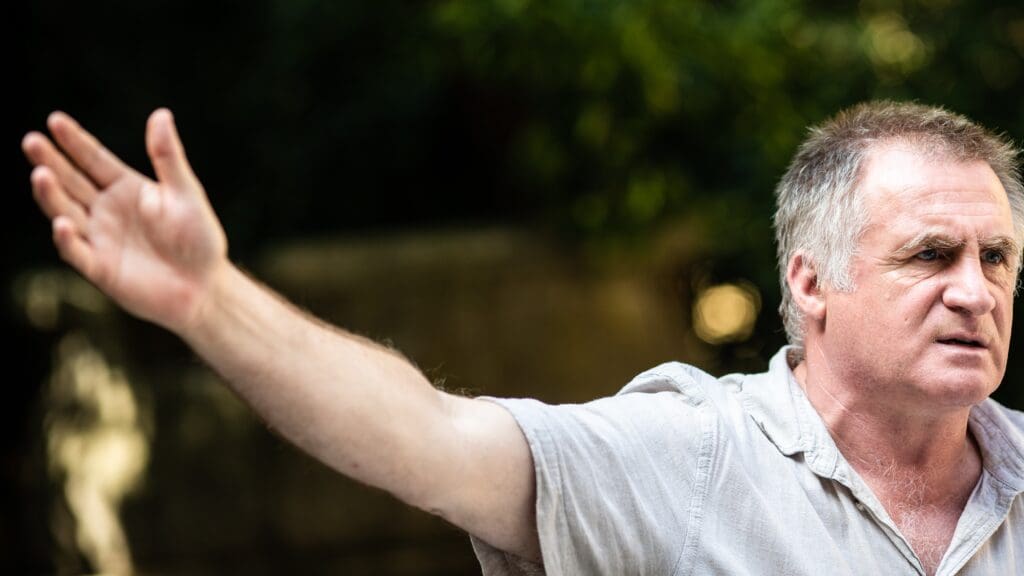
Are you over the shock yet?
If the team concedes a goal, two choices arise: the members either can sit on the bench and mourn what happened or can return to the centre circle and fight with even more effort. The match has not been blown. I won’t say it wasn’t a goal either. But I’m also not going to wonder who made a mistake, the defender or the goalkeeper; I won’t be guessing if it was the parish priest, the psychologist who issued the certificate of professional suitability, or if it was a teacher. We have to get through this period as a team to score the next goal. This is also true in a broader sense: we can get stuck in the past, or we can keep fighting. Perhaps Jesus also experienced Judas’ betrayal as a failure; it hurt him, that’s for sure, but he focused on his mission. We should follow suit.
[Editor’s note: In the summer of 2022, a man who had formerly worked as an assistant teacher at children’s homes of the St Francis of Deva Foundation, run by Brother Csaba, was sentenced to thirty years in prison for having molested several children during the ten years of his employment. The Foundation says they were unaware of the ongoing abuse.]
At the end of the Lenten tide, the question is still relevant. Is self-examination the key to uncovering which path to follow: complaining, dwelling on the past, or strengthening the process of creation?
Let’s pay attention to the ‘heavenly GPS’. If we read the Holy Bible, we will find several personal stories in it about crises that emerged from a human error that were transformed into greatness by God. Jesus can overcome our human failures. He fails to do so only if someone buries his talent, when someone approaches it with pessimistic passivity, lest something bad happens. Numb idleness; sitting on the bench, commenting—these are much worse than trying to do good and making mistakes in the process.
Pastors and psychologists warn that numbness is increasing and that the coronavirus pandemic has only worsened the problem. And now, war news has been a part of our daily lives for more than a year. How can we overcome this?
It’s much more exciting to live than to mime living. I remember when, as a child, we went to play hockey with my friends in Csíkszereda (Miercurea Ciuc); it was difficult to get onto the rink because the grown-ups always occupied it. We whined until they let us play with them. We walked home covered in leaves, blue-green bruises, and a with big defeat behind us, but it was still much better than just sitting around on the side of the track. Everyone is given one life, it’s a shame to spend this time in inaction! Let’s dream, then make it happen!
Speaking of childhood, tell us what little Csaba was like! Was he a naughty or an obedient child?
As a monk, I took three vows—one of them is obedience. Saint Francis explained the Latin root of this word as listening, paying attention. It’s not about being dropped off somewhere and staying there without question, but about me discussing with my supervisor my tasks, and then let’s roll out! Active obedience, that’s the key word. Well, this was typical of me even as a child: I usually informed my mother about developments, but I didn’t wait for her to tell me everything. A human is like a river: if there is a riverbed, it carries life, it is beautiful, but without a riverbed, there’s flood and destruction to come. A child should not be told to sit down and be quiet. A child must go ahead, and try himself! It is our task to point at the right path, and even to make them accompany us through this, so that children can watch us following it.
Is this also the task of the Church?
Exactly; however, preaching about not sinning is not enough. One has to dare to dream and designate the tasks we can achieve together.
‘As we forgive those who trespass against us!’; Let’s put this highlight from the Lord’s Prayer into the context of the Carpathian Basin. It’s a difficult task to find people to cross the border between Hungary and Romania more often than you. Do you think we are making progress with forgiveness?
I thought a lot about whether there’s a holiday we could celebrate together, but unfortunately, there is none—at least for now. I would not like to toast with the Romanians on 1 December, especially since they are not joining us on 15 March either. We cannot celebrate together with the Slovaks and the Serbs either. We need a holiday we can all identify with. Ringing the bells at noon could be obvious by the way. János Hunyadi was an integrative personality to whom Romanians and Serbs are emotionally attached. He was a person who created unity and fought his battles with honour, making him a politician of the highest rank. To commemorate the battle of Nándorfehérvár (Belgrade), I started organising a small celebration in Budapest at the Vajdahunyad castle, and I would be glad to see there not only us, Hungarians, but the representatives of all the surrounding peoples. And next year we could celebrate together elsewhere. Together, we could turn this region into a fairyland. If, on the other hand, we consider each other rivals, or, God forbid, enemies, the same might happen as what we are currently seeing in Ukraine—no stone will be left standing. Jesus said: all those lands, cities, and families that are divided will perish—and this is exactly what we’re seeing right now.
Do you see any chance for cooperation?
In the depths of our souls, we are all longing for a peaceful, calm world, where our children feel fine, where there is dialogue, where we can dream together, where one can work for everyone and everyone can work for one.
Pope Francis will soon revisit Hungary. The question arises: will the legendary Franciscan meet the ‘chief Jesuit’?
I often meet him when reading his writings. He does his thing, I do mine, and I never cared about getting close to the Pope. If the Holy Spirit wants two people to meet, it will happen anyway, I will not provoke it.
But will you come, for example, to the Mass in Kossuth Square?
Of course, and what is more, I will arrive accompanied by children and adult pilgrims. A person is a bit like a roux: you might get burnt unless you keep moving. Experiences and impressions are necessary to reconstruct ourselves. We need to be with the Pope in Budapest.
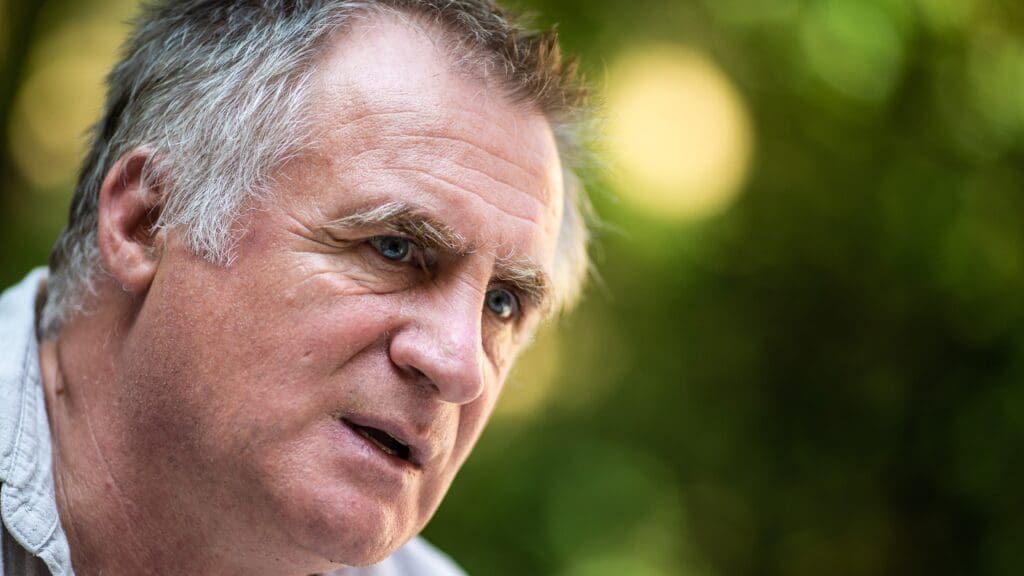
What do you expect to be the focus of his teaching that weekend?
I’ll bet it’s peace. Countries in Europe rarely talk about peace nowadays. I was shocked when I learned that in Ukraine one should not pray for peace, only for victory. But thank God, Hungary is an island of peace, and the Pope appreciates that. One of the reasons he visits us is our consistent commitment to peace. I would be very happy if we could raise the flag of the peace movement together in Budapest. This world is big enough to fit eight billion people in peace.
For the time being, even two neighbouring countries cannot live side by side in peace—do you see a chance for a peaceful settlement of the Ukraine crisis?
Mother Teresa once said that God cannot feed the poor, but the rich. If the members of the mafia can sit down and agree on the limits of each family’s territory, why can’t the global powers follow suit?
Quite few states are calling for an immediate ceasefire and peace. Do you know the reason?
If the people were asked, I am quite sure that far more would vote for immediate peace than for the war to be continued. But it is clear that the arms factories and powerful businessmen have several means of asserting their interests. We have to act more actively because war destroys everything. On the other hand, peace solves everything. We are preparing for Easter, the holy three days during which Jesus performed one single miracle: he healed the high priest’s servant, whose ear Peter had cut off amidst the fight. And to Peter, the first pope, Jesus said: ‘Put your sword back into its place. For all who take the sword will perish by the sword.’ He healed only one person these days: someone who threatened his life. As Christians, we must never forget this.
However, experience shows that even between denominations, and even within them, sharp conflicts may arise. Is it possible that none of us understands the teachings of Christ?
I never said that we have reached our destination, that the kingdom of heaven was announced yesterday by Archangel Gabriel. We are on our way along which we face plenty of problems. But learning how much we have already achieved during the past two millennia gives us strength. On the other hand, I don’t usually save my sons from a bit of healthy cockiness—I even roll the ball around and say, let’s see who will gain the day. A subtle, cultivated test of strength, a verbal duel is appropriate—especially men need it. We don’t want to raise milk-sops. It’s all right if the churches have their own ideas, as long as they can discuss them with each other! We are trained by challenges and contradictions. This is a good thing; it just needs to be handled moderately. If we had done only what the authorities in Déva permitted us to do, we would still be standing in front of a rusty lock, wondering what the following step should be. We need a little spirit, so we can knock down the walls and build a better world together. If you don’t like the way things go in the world, don’t accept it—proceed according to your opportunities instead and do what God calls you to do!
The images used for the interview are illustrations. The pictures were taken by Árpád Földházi (Mandiner) in 2019.

